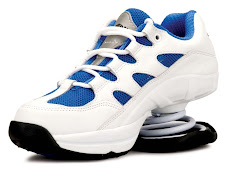Part 2 of 3, Maximize Your Medical Care
 Get the first appointment of the day
Get the first appointment of the day"Doctors won't yet be distracted by the backlog of patients and paperwork that tends to accumulate as the day goes on," says Mark Murray, MD, owner of a health care consulting firm in Sacramento. Can't get an early morning appointment? Try for right after the doctor's lunch hour. If your physician also performs surgery, make sure you're scheduled for a day when she's exclusively seeing patients. "Any time doctors are switching lanes, like coming back to the office from surgery, they're going to get slammed with a bottleneck of work that demands their immediate attention," he adds.
Test your cholesterol twice a year
To get a complete picture of your lipid levels, have them checked once in the summer and then again in December, recommends Ira Ockene, MD, a professor of preventive cardiology at the University of Massachusetts Medical School. His research shows that cholesterol levels fluctuate between the seasons and generally tend to peak midwinter, especially in women. Though the average change from July to January is only 4 points, it can be enough to indicate that you need treatment. The average of your high and low scores is the number to act on.
Arrange your elective surgery for winter or spring
Avoid July, August, and September, when teaching hospitals are flooded with med students starting their residencies, the on-the-job-training part of their medical education. A study by the National Bureau of Economic Research found that the average length of stay at major teaching hospitals increases by 2% during those months; the average mortality rate increases by 4%. This accounts for an additional 1,500 to 2,750 deaths per year nationwide. "You're better off giving interns at least 3 months to learn the ropes of the hospital," says Murray.
Have head-to-toe skin exams in December
You're less likely to be tanned, so "the higher contrast between your skin and pigmented lesions will make it easier for physicians to spot anything suspicious," says Andrew Kaufman, MD, a dermatologic surgeon in Thousand Oaks, CA, who specializes in skin cancer. But don't wait to see a doctor if you notice something abnormal. "Most changes turn out to be insignificant," he adds, "but it's better to be safe."
Fill your prescription midmonth
Drugstores get busy at the beginning of the month, when welfare and Social Security checks hit people's mailboxes. You're not merely saving yourself from a longer line: Fatalities due to pharmacy-related medication errors rise by as much as 25% at the beginning of the month, found a study at the University of California, San Diego, and Tufts University School of Medicine.
Take birth control or heart pills before bed
If you take blood pressure medication before turning in, it will still be working by early morning, which is the time associated with a 30 to 50% increased risk of heart attacks and strokes, according to researchers at the Mayo Clinic. And because the liver revs up cholesterol production overnight, you'll maximize the lipid-lowering ability of statins such as Lipitor, Zocor, Pravachol, Mevacor, and Crestor if you take them before hitting the sack. Popping your birth control pill at night makes sense because you'll sleep through any nausea, a common side effect.
Swallow your multi with a meal
Your body absorbs vitamins better when you take them with food, says Jeffrey Blumberg, PhD, a professor of nutrition at Tufts University. This will minimize the potential for stomach upset, too, and make you more likely to remember your multi every day.

No comments:
Post a Comment